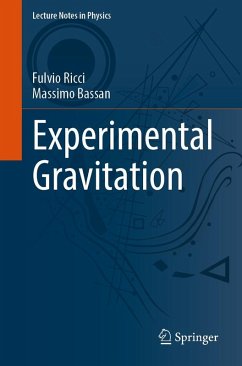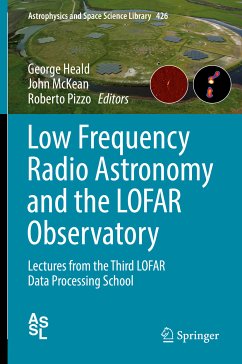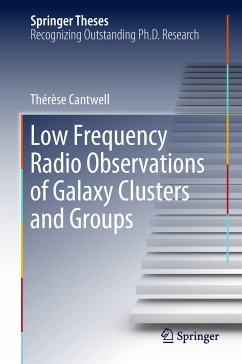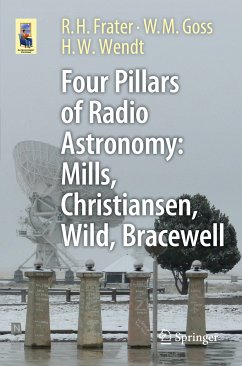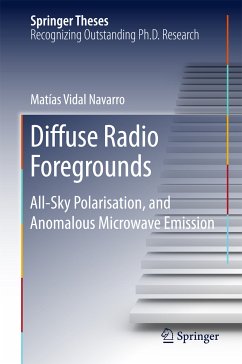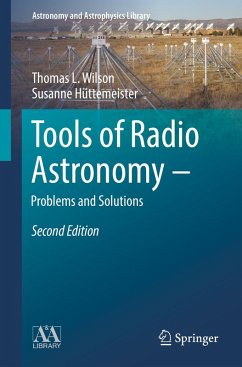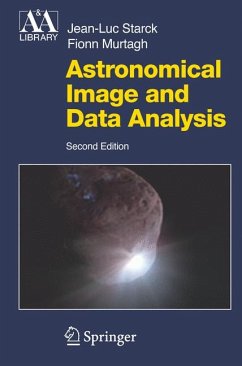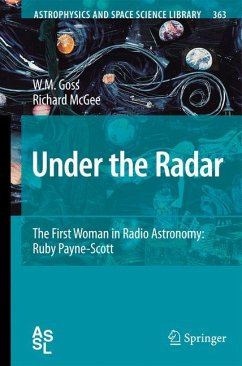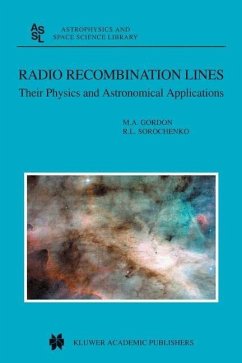
Data-Intensive Radio Astronomy (eBook, PDF)
Bringing Astrophysics to the Exabyte Era
Redaktion: Vardoulaki, Eleni; Hoeft, Matthias; Drabent, Alexander; Dembska, Marta
Versandkostenfrei!
Sofort per Download lieferbar
120,95 €
inkl. MwSt.
Weitere Ausgaben:

PAYBACK Punkte
60 °P sammeln!
Radio astronomy is irreversibly moving towards the exabyte era. In the advent of all-sky radio observations, efficient tools and methods to manage the large data volume generated have become imperative.This book brings together the knowledge of several different research fields to present an overview of current state-of-the-art methods in data-intensive radio astronomy. Its approach is comprehensive and data-centric, offering a coherent look at the four distinct parts of the data lifecycle:Data creation, storage and archivesData processingPost-processing and data analysisData access and reuse ...
Radio astronomy is irreversibly moving towards the exabyte era. In the advent of all-sky radio observations, efficient tools and methods to manage the large data volume generated have become imperative.
This book brings together the knowledge of several different research fields to present an overview of current state-of-the-art methods in data-intensive radio astronomy. Its approach is comprehensive and data-centric, offering a coherent look at the four distinct parts of the data lifecycle:
Large data management has been the topic of discussion within the astronomical community for decades. Some relevant areas explored in this volume are: ongoing technological innovations in interferometers and computing facilities; difficulties and possible solutions for the huge processing demands of radio telescope projects such as LOFAR, MeerKat, ASKAP; concepts for reliable and fast storage for archiving; and more.
Written by experts across astrophysics, high-energy particle physics, data science, and computer science, this volume will help researchers and advanced students better understand the current state of data-intensive radio astronomy and tackle the major problems that may arise from future instruments.
This book brings together the knowledge of several different research fields to present an overview of current state-of-the-art methods in data-intensive radio astronomy. Its approach is comprehensive and data-centric, offering a coherent look at the four distinct parts of the data lifecycle:
- Data creation, storage and archives
- Data processing
- Post-processing and data analysis
- Data access and reuse
Large data management has been the topic of discussion within the astronomical community for decades. Some relevant areas explored in this volume are: ongoing technological innovations in interferometers and computing facilities; difficulties and possible solutions for the huge processing demands of radio telescope projects such as LOFAR, MeerKat, ASKAP; concepts for reliable and fast storage for archiving; and more.
Written by experts across astrophysics, high-energy particle physics, data science, and computer science, this volume will help researchers and advanced students better understand the current state of data-intensive radio astronomy and tackle the major problems that may arise from future instruments.
Dieser Download kann aus rechtlichen Gründen nur mit Rechnungsadresse in A, B, BG, CY, CZ, D, DK, EW, E, FIN, F, GR, HR, H, IRL, I, LT, L, LR, M, NL, PL, P, R, S, SLO, SK ausgeliefert werden.



